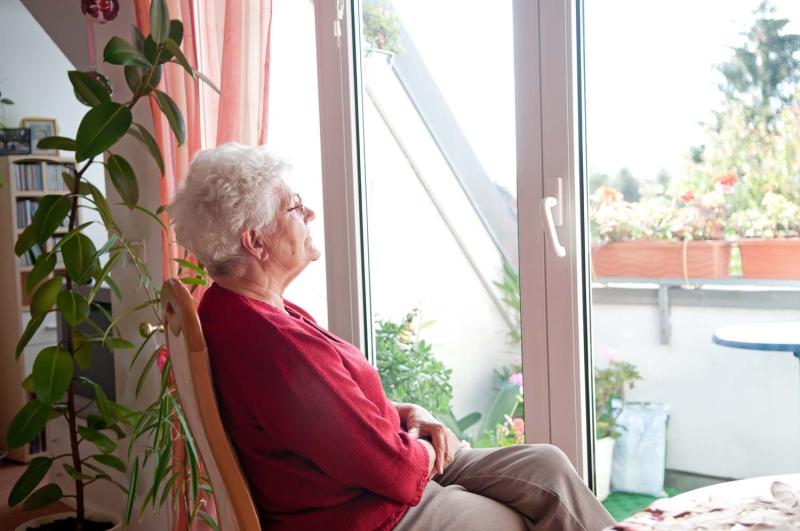Key points
- Responsive behaviours include agitation, disruptive behaviour, wandering, irritability, anxiety, depressed mood, apathy, disinhibition, and appetite and sleep issues.
- There is an ongoing discussion about the language surrounding changed behaviours with dementia.
- From our review, the most promising approaches to reduce responsive behaviours included music-based interventions, multisensory stimulation, rapid response teams, psychological interventions, respite care, occupational therapy, case management, and massage and touch.
- There is inconclusive evidence that approaches such as care worker training, aromatherapy, simulated presence therapy, supportive interventions, pet therapy, person-centred care, Namaste Care, light therapy, exercise, dance-based interventions, case conferencing, arts-based interventions, or Dementia Care Mapping influence responsive behaviours.
Responsive behaviours include agitation, disruptive behaviour, wandering, irritability, hallucinations, anxiety, depression, apathy, delusions, disinhibition, and appetite and sleep alterations. [1] Responsive behaviours are experienced by more than 90% of people living with dementia at some point. [1] Some people express these behaviours at certain times of the day, such as in the evening. [2] Responsive behaviours may also occur more frequently during specific activities such as bathing or mealtimes. [3]
Responsive behaviours are associated with poor outcomes such as distress among those living with dementia and their caregivers, inappropriate prescribing of antipsychotic medication, long‐term hospitalisation, mortality, excess morbidity, institutionalisation, early placement in residential aged care, and increased healthcare costs. [4, 5]
There are multiple ways to refer to responsive behaviours, such as:
- Changed behaviours
- Behaviours of concern
- Challenging behaviour/behaviour that challenges
- Expressions of unmet need
- Behavioural disturbance
- Problematic behaviours
- Difficult or distressing behaviour
- Behavioural and psychological symptoms of dementia or BPSD (best reserved for use in clinical and research contexts only). [6]
There is an ongoing discussion around the language used for changed behaviours with dementia. The term ‘behavioural and psychological symptoms of dementia’ (BPSD) was designed to be used in clinical and research contexts. However, over time, the term BPSD has become commonly used in aged care settings. [7] Concerns have been raised about the appropriateness of this term. Some experts in the field have argued that day-to-day use of the term may lead people to overlook the underlying cause(s) of the behaviour. Once a person living with dementia has been labelled as having BPSD, less attention may be given to their needs, such as:
- Physical needs (e.g., pain, constipation, hunger)
- Emotional needs (e.g., loneliness, boredom, fear)
- Environmental needs (e.g., noise, temperature, level of stimulation).
To reflect these potential causes for behaviour, some experts on the topic have recommended alternative terms such as ‘responsive behaviours’ or ‘expressions of unmet need’. However, other experts, as well as family carers, have stated that these terms may also be inappropriate. After all, some behaviours may not be responses to unmet needs. They could be a direct result of changes to the brain. While removing unhelpful labels and stigma around dementia is important, we also need to acknowledge that some behaviours may be caused by unmet needs.
The language used by the Knowledge & Implementation Hub
We have opted to use the term ‘responsive behaviours’ throughout our written work. Although we acknowledge this term is not perfect, we believe this language brings greater attention to the opportunity for carers, caring professionals, and wider society to consider potential unmet needs to improve outcomes for those living with dementia.
Responsive behaviours were identified as a key issue in a scoping review of dementia research. This evidence theme is a summary of current evidence. If you need more information on this topic, try using the PubMed search below.
From our scoping review, the most promising interventions for reducing responsive behaviours include:
- Case management
- Massage and touch
- Multisensory stimulation
- Music-based interventions
- Occupational therapy
- Psychological interventions
- Rapid response teams
- Respite care.
Evidence about the impact of other approaches on responsive behaviours was somewhat inconclusive. This is because some studies reported benefits of the approach, while others did not. Approaches with inconclusive findings include:
- Aromatherapy
- Arts-based interventions
- Care worker training
- Carer support interventions
- Case conferences
- Dance-based interventions
- Dementia Care Mapping
- Exercise and physical activity
- Light therapy
- Namaste Care
- Person-centred care
- Pet therapy
- Simulated presence therapy.
These findings are largely consistent with those of previous reviews that have focused on what works for responsive behaviours. [8-11]
The reviews highlighted concerns about the methods used in some of their included studies. This reduces the degree of certainty we might have about the benefits of interventions to reduce responsive behaviours. For example:
- Some studies only had a small number of participants. [11]
- It is occasionally unclear how long some benefits last once the study ended. [10]
- Studies were not always clear about what the interventions involved (e.g., staffing number, number of sessions, facilities, and materials used). [10]
People caring for someone with dementia may not have all these strategies available to them to try when attempting to manage responsive behaviours. There are still ways to interact positively which may make a difference. For example:
- Work to understand the person’s behaviour as trying to communicate unmet needs.
- Calm and reassure the person that they have been heard and that you will act to ensure their needs will be met.
- Keep in mind that hurtful, aggressive behaviour is usually not meant personally.
- Remember that care is not just physical. Try to learn more about each person’s unique interests and life stories.
- Try different approaches to find what works best to allay people’s anxiety and agitation. This might be distracting the person with a different activity.
- Encourage staff to be informed about each person’s life and preferences.
- Provide regular staff training to show how individualised approaches to care can help make tasks easier, particularly at difficult times such as mealtimes and bath times.
- Give staff time to share their experiences of specific people in their care with each other, to debrief and learn from each other.
- Acknowledge the difficulties staff face and encourage staff self-care activities.
- Cerejeira J, Lagarto L, Mukaetova-Ladinska EB. Behavioral and psychological symptoms of dementia. Front Neurol. 2012;3:73.
- Canevelli M, Valletta M, Trebbastoni A, Sarli G, D'Antonio F, Tariciotti L, et al. Sundowning in dementia: Clinical relevance, pathophysiological determinants, and therapeutic approaches. Front Med (Lausanne). 2016;3:73.
- Backhouse T, Dudzinski E, Killett A, Mioshi E. Strategies and interventions to reduce or manage refusals in personal care in dementia: A systematic review. Int J Nurs Stud. 2020;109:103640.
- Kales HC, Gitlin LN, Lyketsos CG. Assessment and management of behavioral and psychological symptoms of dementia. BMJ. 2015;350:h369.
- Delgado J, Bowman K, Clare L. Potentially inappropriate prescribing in dementia: A state-of-the-art review since 2007. BMJ Open. 2020;10(1):e029172.
- Guideline Adaptation Committee. Clinical practice guidelines and principles of care for people with dementia [Internet]. Sydney: Guideline Adaption Committee; 2016 [cited 2023 Jun 29]. Available from: https://cdpc.sydney.edu.au/wp-content/uploads/2019/06/CDPC-Dementia-Guidelines_WEB.pdf.
- Cunningham C, Macfarlane S, Brodaty H. Language paradigms when behaviour changes with dementia: #BanBPSD. Int J Geriatr Psychiatry. 2019;34(8):1109-13.
- Livingston G, Kelly L, Lewis-Holmes E, Baio G, Morris S, Patel N, et al. A systematic review of the clinical effectiveness and cost-effectiveness of sensory, psychological and behavioural interventions for managing agitation in older adults with dementia. Health Technol Assess. 2014;18(39):1-226.
- Meyer C, O'Keefe F. Non-pharmacological interventions for people with dementia: A review of reviews. Dementia. 2020;19(6):1927-54.
- Trivedi DP, Braun A, Dickinson A, Gage H, Hamilton L, Goodman C, et al. Managing behavioural and psychological symptoms in community dwelling older people with dementia: 1. A systematic review of the effectiveness of interventions. Dementia. 2019;18(7-8):2925-49.
- Wang G, Albayrak A, van der Cammen TJM. A systematic review of non-pharmacological interventions for BPSD in nursing home residents with dementia: From a perspective of ergonomics. Int Psychogeriatr. 2019;31(8):1137-49.
Connect to PubMed evidence
This PubMed topic search is limited to home care and residential aged care settings. You can choose to view all citations or citations to articles available free of charge.


